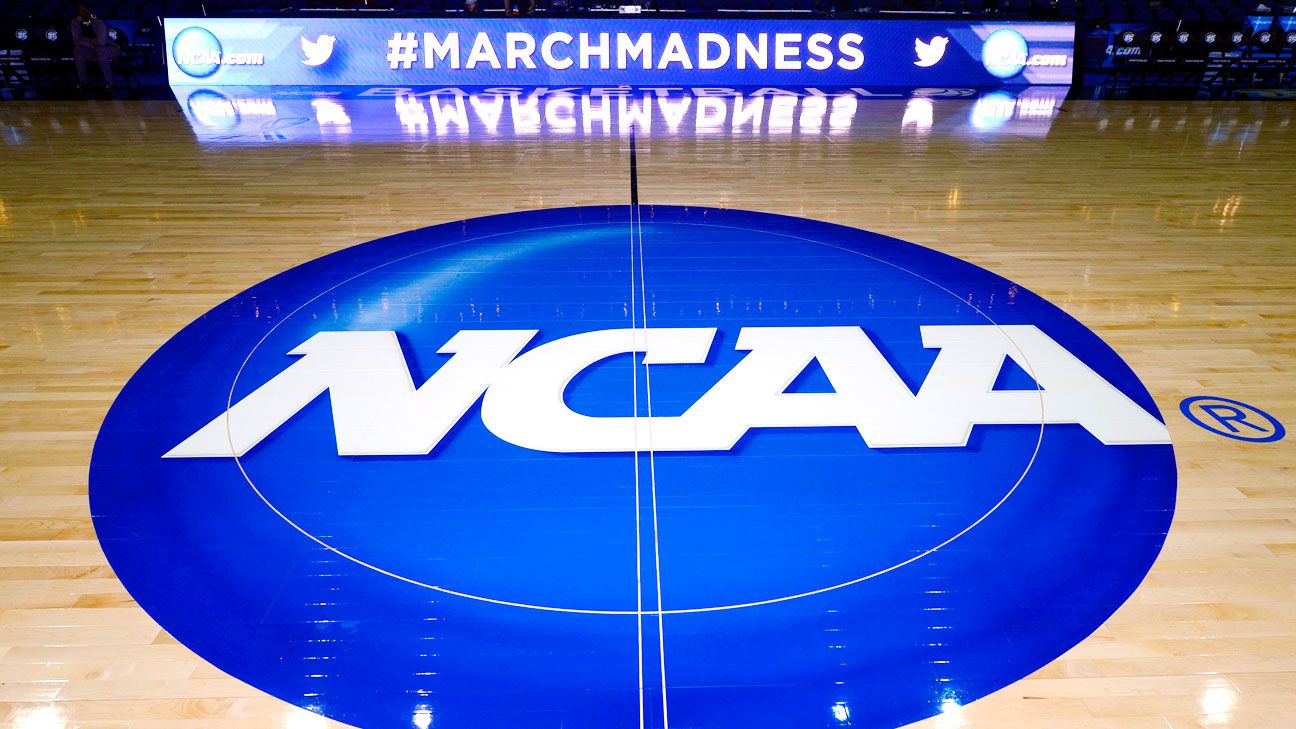Study: ‘Angry bettors’ drive NCAA athlete abuse

Abuse by “angry sports bettors” is one of the most common types of harassment college athletes receive, making up at least 12% of publicly posted social media abuse, according to a new analysis conducted on behalf of the NCAA.
The NCAA partnered with data science company Signify Group, which analyzed social media accounts for more than 3,000 college athletes, approximately 500 coaches, 200 event officials and 165 teams during the 2024 College Football Playoff, men’s and women’s basketball tournaments, men’s and women’s College World Series and volleyball and gymnastics championships.
The NCAA, which will publish the full findings Thursday, released an excerpt on sports betting to ESPN on Tuesday.
The study defined “angry sports bettors” as individuals who “engage in problematic and intrusive communications due to match events and results contradicting bettors’ predictions.” Athletes received abusive messages before, after and during events. The survey listed sexual abuse, racism and homophobia as among other common harassment categories. Signify analysts found some abusive posts that did not overtly mention gambling still had ties to betting.
The analysis flagged 743 abusive or threatening messages referencing betting or match-fixing allegations, with 73% of them occurring during March Madness, the most popular event with American bettors. Women athletes received approximately 59% more abusive messages than men, the analysis found.
The issue occurred even in sports that are less popular with gamblers, including softball, where 24% of abusive messages flagged were from angry bettors.
The NCAA emphasized that the analysis covered only public-facing threats, not private messages, where, according to Signify executives, harassment is likely worse.
Signify’s research on social media harassment in global sports found that angry sports bettors drive as much as 45% of all abuse surrounding some major sports tournaments.
The NCAA shared a handful of examples of abusive messages sent during March Madness, including one directed at a high-profile men’s basketball player before a tournament game that read, “Yo no big deal but if you don’t get 22 points and 12 boards everyone you know and love will Be dead.” Other examples included requests for money.
“It’s clear to us too … as the prevalence of sports betting went up, so did the prevalence of sports betting-related abuse,” Clint Hangebrauck, the NCAA’s managing director of enterprise risk, told ESPN.
Eighteen of the 38 states that offer legal sports betting, as well as the District of Columbia, prohibit licensed sportsbooks from offering college prop bets, a ban the NCAA supports. Gambling regulators in states with such bans have reported fewer issues of harassment, according to Hangebrauck.
“I don’t want to draw too many conclusions from that,” he said, “but it does seem like it’s having a positive effect.”
Signify used artificial intelligence to flag potentially abusive social media posts that tagged athletes, coaches, teams and officials on X, Instagram, TikTok and Facebook. The company’s data scientists reviewed the posts and flagged those that met the criteria for harassment or abuse. Some were deemed serious enough to be referred to authorities, the company said.
Related
Sports Medicine Report: Sporting heads east to take on D.C.…
Sports Medicine Report is SportingKC.com’s look at the latest health update around the team ahead of upcoming matches and is pre
😔 João Palhinha’s Bayern Munich nightmare continues
João Palhinha's 2024/25 season has been marred by injury and the Portuguese midfielder had another setback against Bochum.Palhinha was sent off in the 43rd min
Which baseball player could excel at another sport? MLB player…
MLB.com and its beat writers surveyed over 100 players asking them which MLB player would excel at another sport and two Cincinnati Reds players ranked in the T
Raiders had no interest in Aaron Rodgers
When tracking down the details of the Raiders’ latest contract with Maxx Crosby on Thursday, I had a question for our sou











